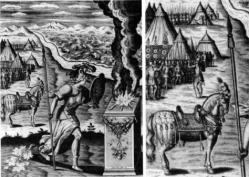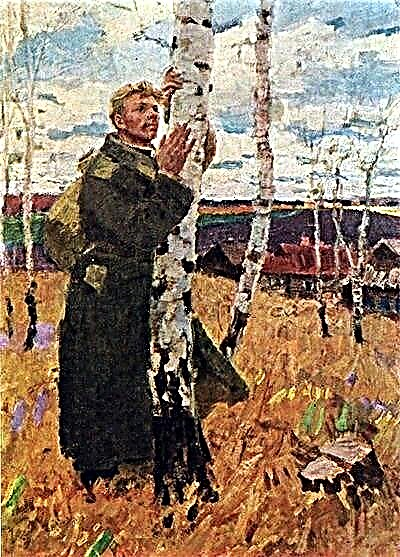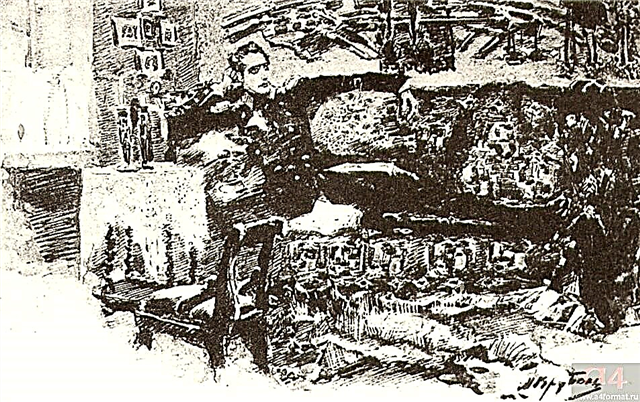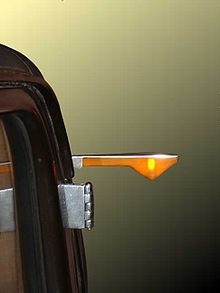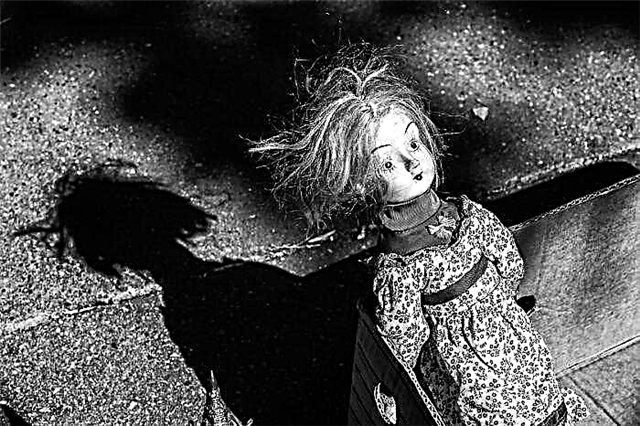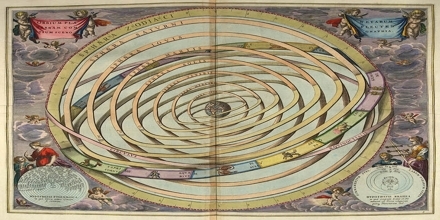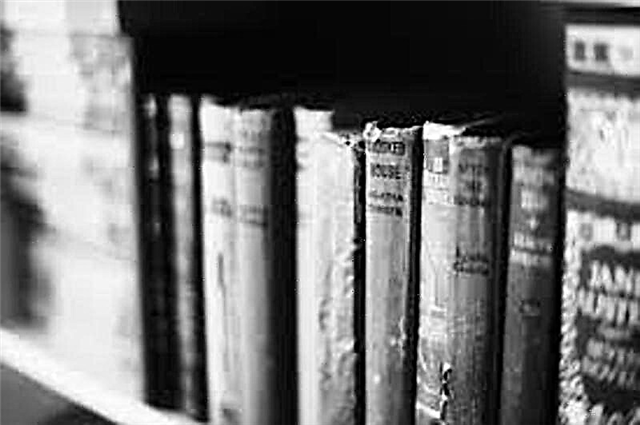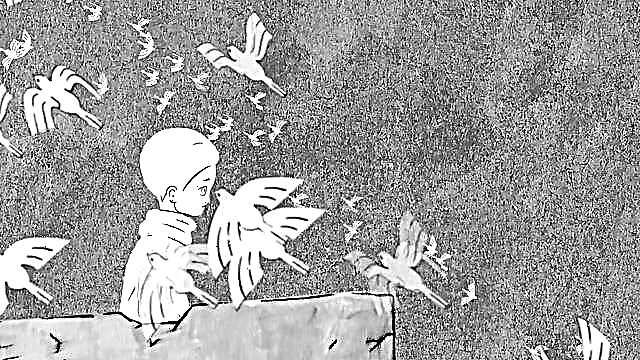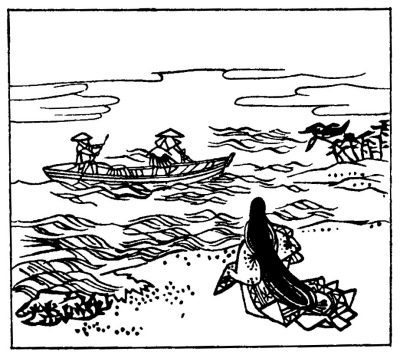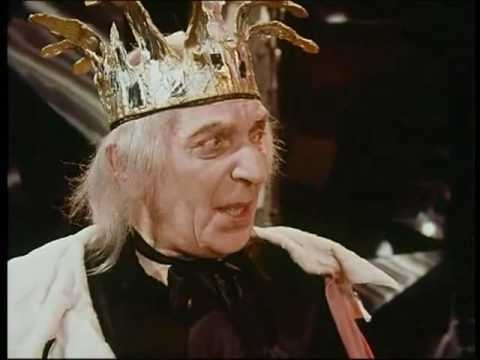Story A.P. Chekhov's "Ionych" was published in the "Monthly Literary Supplements" to the journal "Niva" in the same year 1898 in which it was written. This work cannot be attributed to a specific topic. It simultaneously speaks of the development of man and the degradation of his soul. On the one hand, Ionych becomes a significant person in the city, he is wealthy and has special authority, but, on the other hand, material wealth negatively affects the spiritual formation of the hero. Depending on what question the reader asks himself when reading this story, it can be attributed to a social topic (what role did society play in shaping Ionych’s character?), Psychology (can a person resist society?), Or philosophy (why does the hero choose such life path, does not continue to fight?).
History of creation
From the notebooks and diaries of the author, literary scholars were able to recreate the original plan of the writer, who had both differences and similarities with the published text. What is the original idea of the author? What changes did his idea undergo during the work? How fundamentally different is it from the source material? What happened and what became?
Initially, Chekhov wanted to write a story whose center would be the Filimonov family. It is easy to understand that this is a kind of prototype of the future Turkins. In the final edition, the main features of the members of this family were preserved. What is the difference then? It consists in the fact that at first the story did not contain the main character, that is, Ionitch himself. What does this change? At first glance, the subject of the story does not undergo changes: the spiritual poverty of the Filimonov (Turkins) family. But the appearance in the work of Startsev entails a change in the main idea of the work. If initially it was a question of the mental poverty of one particular family, then in the final version the Turkins are shown to be the best in the city, which makes us think about what other residents are then and how the society of these people changed the life of the protagonist.
The meaning of the name
Starting to read Chekhov's story, you assume that the Turkins family will be in the center of his attention: a detailed description is given of each of its members with character and habits. Only later does the reader understand that the name is connected with the main character. Ionich - middle name of Dmitry. In its rough sound, the author conveys the essence of the metamorphosis that the doctor underwent. On a patronymic people familiarly address those whom they know, but do not hurt respect. Usually they say this about a person behind their backs, wanting to emphasize a short acquaintance with him or even belittle him. All the inhabitants of the city intuitively realized that a promising young man became one of them, a tradesman and a layman, who became isolated in the routine of days, flabby and lost his destiny. If before he was respected, by the end he became an ordinary resident of the county town, gray and faceless.
Ionich is Dmitry Ionovich Startsev. The selected title focuses on the nickname of the hero, which is given to him at the end of the story. This is precisely the meaning of the work. Having chosen this title for the story, Chekhov poses the question to the reader: “How did the Zemstvo doctor Startsev turn into Ionych?” Only about that reader can we say that he understood the essence of the work, which he could find in the text the answer to this question.
Genre, composition, direction
Anton Pavlovich Chekhov is known as the author of plays and small prose. His work “Ionych” is a realistic story. A striking feature of this direction and the main theme of Ionych are social problems raised by the author. Also, an objective description and the presence of typical characters testify to belonging to realism.
In the work, everything always follows one goal - the embodiment of the author’s thoughts. This follows the composition. This story of Chekhov consists of five chapters. Thus, the golden ratio is the third chapter. She is turning point for the protagonist. In it, Startsev makes Kitty an offer and is rejected. From this moment begins the spiritual fall of the hero.
Essence
This is a story about a zemstvo doctor who walked, practiced and believed in love, but over the course of several years he turned into an “idol”, owning his own three, a stout man in the street, whose games and money counting became his favorite pastimes.
The author tells how in the absence of the possibility of development and the desire for self-improvement, a person quickly gets used to a new, simpler pace of life - degradation. Starting with ambitious plans and good intentions, the hero lowers the bar and simplifies life, becoming an ordinary tradesman with a banal set of values: gambling, personal enrichment, good reputation. Chekhov ponders the reasons for this transformation. Kotik had a strong influence on Startsev. Perhaps if she hadn’t acted in love with Dmitry Startsev so cruelly, if she had not taunted his love, then everything would have turned out differently. But these are only guesses and assumptions ...
The main characters and their characteristics
- Turkins - "the most educated family." They live on the main street of the provincial city S. All family members have static characters. Turkin Ivan Petrovich likes to joke and tell jokes. He speaks his own language to entertain guests. His wife, Vera Iosifovna, writes romance novels and reads them to guests in the evenings. Turkina's daughter, Ekaterina Ivanovna, or Kotik, as affectionately in the family circle calls her, plays the piano. She even wanted to go to the conservatory, but nothing came of it. In the Turkins' house there is still a footman Pav, who, in order to raise the mood of the guests, theatrically cries out: “Die, miserable!
- Dmitry Ionovich Startsev - A talented doctor who went to work in city C after studying. This is an educated, sensitive and shy young man, inclined to idealize everything. He does not live in the city itself, but a few miles from it. He falls in love with Katerina, makes an offer, but is refused. Gradually, he changes, becoming irritable, callous and indifferent to everything. In describing this hero, an important feature is the degradation of his character throughout the work. It is shown through several constant details: the method of movement (on foot, a couple, and then the three horses with bells), completeness, attitude to society and love of money. The appearance of the hero is a clear reflection of the impoverishment of his soul.
Themes and Issues
- Vulgarity in "Ionych" - one of the main topics. Startsev, getting used to life in the city, only silently played, drank, ate and counted money at home, he became far from his former ideals. His life goals fell to daily routine worries and the desire to accumulate capital. The hero’s internal degradation is emphasized by his external changes: “Startsev is even more stout, obese, breathing heavily and is already walking, throwing his head back.”
- City life. The description of everyday life and customs in the city, and, in particular, of the Turkins family, is connected with raising the theme of people's mental poverty. What kind of townspeople are we represented? How do they while away leisure? This is evidenced by the main character himself. Ionych talks about his pastime to Ekaterina Ivanovna. From his words about an ordinary day, we can clearly imagine how residents spent their free time. Everything is monotonous, “life goes dull, without impressions, without thoughts”: a club, playing cards, alcohol.
- Love. What would happen if Kotik agreed to marry Startsev, one can only speculate. This did not happen, and the hero himself at the last meeting with Ekaterina Ivanovna was glad of this. Based on this, we can say that everything in his soul died out, and even such a strong feeling as love could not awaken him to life. But if you look differently, then Ekaterina Ivanovna cannot be called an unusual girl, capable of awakening a great feeling. At the end of the story, Ionych, already taught life, understands this.
Idea
Despite the presence of several topics in the story, the focus is on one question - the relationship between man and society. No one will argue that Startsev by the end of the novel becomes the same colorless layman as any citizen of the city. When comparing the portrait of the hero presented at the beginning of the book with the lifestyle and appearance of Startsev at the end, the impoverishment of his soul and the disappearance of high aspirations become apparent. If earlier his plans included a vocation, expressed in an interest in medicine, then by the finale it became clear that Dmitry did not fulfill his mission. According to Chekhov, it is enthusiastic, conscious work that cleanses and exalts us, pulling people out of the bustle and vulgarity of the world of things, life and routine. Losing love for the work of his whole life, being lazy and mingling with a crowd of worthless onlookers, Startsev changes his dream and loses himself.
The author emphasizes the vulgarity of the hero with the help of details. This impression is also reinforced by the presence of a double for Startsev, the coachman Panteleimon. Complementing the characteristics and descriptions of Dmitry Ionych and changes in his lifestyle, this helps to create a finished picture in the reader’s imagination.
Criticism
His opinion on the story of A.P. Chekhov's "Ionych" was expressed by many literary critics, writers and critics. It is rather difficult to generalize, since it is not unique. Dmitry Ovsyaniko-Kulikovsky, a literary critic and linguist, who was one of the first to write his own review, noted in the Sketches on Chekhov’s Creativity an unusual character: he does not oppose society, but lends itself to its influence.
Writers such as Kireev and Solzhenitsyn were more impressed by the episode of explaining the characters in the cemetery, rather than the main storyline. In connection with this scene, in their opinion, the theme of the relationship of man to death is raised in the story.
There are also negative reviews of this work, which emphasize the simplicity of the images of the characters, their lack of openness and detail. No less about this story and positive reviews. The words of R. I. Sementkovsky reflect their general idea:
Read the latest works of Mr. Chekhov, and you will be horrified by the picture of the modern generation, which he painted with his characteristic skill.

